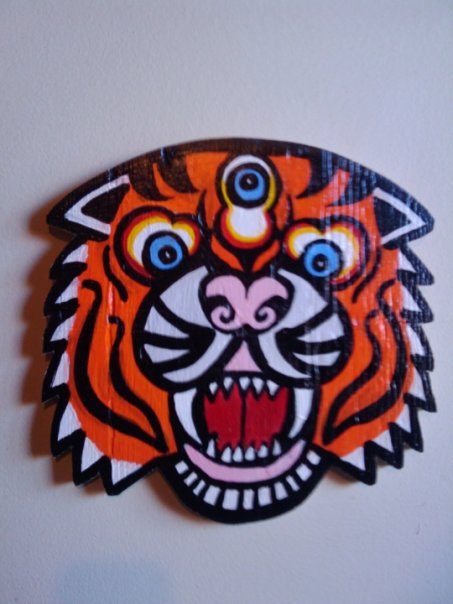My little narrative of how John Vaillant ended up at RiverRun centered on my experience – a less Ptolemaic version might have emphasized the key roles play by Steve Bodio and his review of the Tiger and by Michele at RiverRun. It’s easy to be the pivot when there are folks like these jamming on the lever arms. Noted in passing – Michele is on NH Magazine’s 2010 ‘It List’ in recognition of the central role she plays in making Portsmouth the hoppin’ place it is. And another shout-out to @westchesterdead and @apatheticalto – many fulcrums make for a smooth Rube Goldberg of connections.
Support your local independent bookstore. Really. Browse. Hang out. Buy. Tell the booksellers, “You have the best job – you can just sit around and read all day.” – they’ll love it. You don’t know what you got till it’s gone and unless you support your local, it may disappear. I’m making some changes to the way I link out to books from D0aMNH to be a touch more indie-friendly.
Support big cat conservation. Apex predators are critical – when they’re removed, the ecosystem changes, often radically and never for the better if one values diversity. The easiest way to pitch in is by contributing to organizations that are fighting poachers:
- The Phoenix Project via Global Giving – along with Amur Tiger protection, the Phoenix Project is also trying to save the last 30 Amur Leopards left in the wild. This is where I chose to contribute.
- The Phoenix Project via Wildlife Alliance (select the fund in the ‘you can support’ dropdown).
- Panthera is involved with conservation effort for all big cats – Tigers, Snow Leopards, Jaguars, you name it. Quick quiz – what’s the 3rd largest big cat? They live in the Americas.
- A more extensive list of worthy organizations (John Vaillant’s picks) can be found here.
There are so many things to work on in our own lives – reducing the amount of fossil fuels we use, figuring out what’s going on with the food we eat, staying involved with local community issues – but once a big predator is gone, that’s it. A thread of, for lack of a better phrase, predator knowledge is broken. Tiger cubs stay with their mother for a couple years, learning the ins and outs of the particular landscape they’re in. That understanding goes back tens of thousands of years, passed from mother to cubs; there ain’t no magicing it back if it disappears. A few bucks now buys some time and a few bucks – a tank of gas, a new set of batteries, tires for the truck – make a big difference in anti-poaching efforts.
Via Adelle’s FB Gallery (thanks, G).

